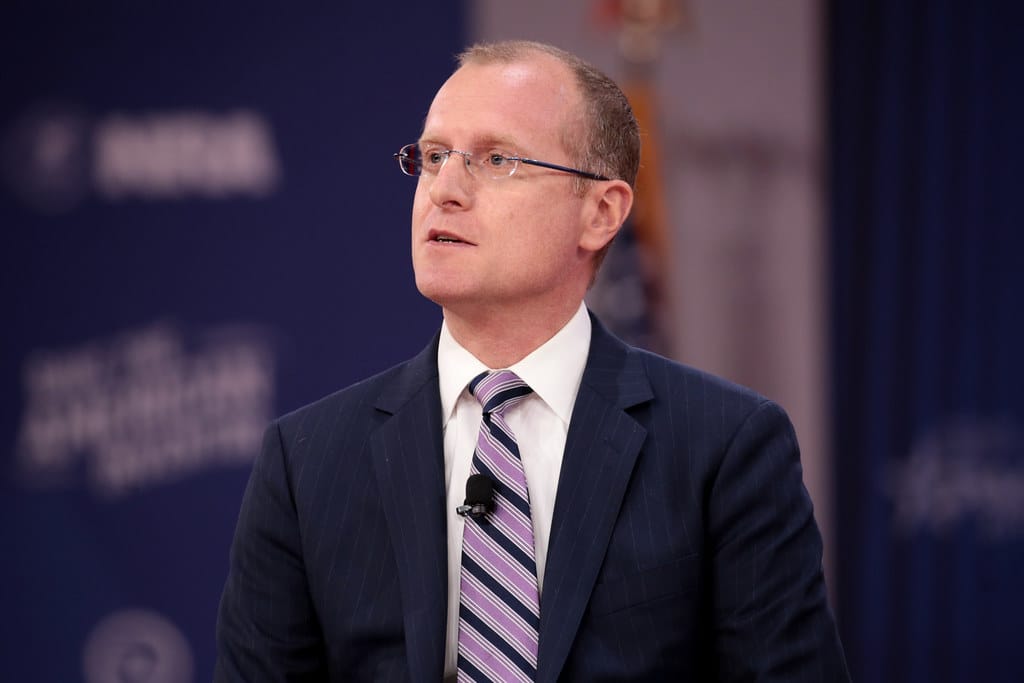Carr ‘Surprised’ by RDOF Denials, ‘New Normal’ on Supply Chain, $68M for Student Connectivity
Carr said he was notified via press release of the FCC decision to deny RDOF money to Starlink and LTD.
Ahmad Hathout

August 15, 2022 – Federal Communications Commissioner Brendan Carr said he was surprised by the commission’s decision to deny Starlink funding from the Rural Digital Opportunity Fund.
“I am surprised to find out via a press release – while I am on a work trip to remote parts of Alaska – that the FCC has made this significant decision,” Carr said about Wednesday’s decision.
“I will have more to say because we should be making it easier for unserved communities to get service, not rejecting a proven satellite technology that is delivering robust, high-speed service today,” he said. “To be clear, this is a decision that tells families in states across the country that they should just keep waiting on the wrong side of the digital divide even though we have the technology to improve their lives now.”
Carr is a Republican who was on the Ajit Pai-led commission that awarded funding for the satellite provider and the LTD Broadband, which also saw its winnings revoked by the commission on Wednesday and told this publication that it is looking into next steps.
Gary Bolton, the head of the Fiber Broadband Association, meanwhile celebrated the decision Wednesday, saying it “provides clarity and a path forward for fiber and closing the digital divide, while returning $885.5M of this precious funding back into the RDOF fund for more appropriate broadband projects.”
Bolton noted that the awarding of funding to Starlink in certain areas would have precluded those areas from getting fiber connections from the $42.5-billion broadband infrastructure program run by the National Telecommunications and Information Administration.
The federal government has previously made numerous reference to fiber as its preferred option for the future of broadband in the country.
Telecom head says there’s ‘new normal’ on supply chain
The CEO of Consolidated Communications said he sees a new view on the supply chain following disruptions in product supply over the pandemic, according to reporting Thursday from Fierce Telecom.
The backup in the supply chain on many products overseas has caused delays in shipments for telecom and technology equipment that have pushed back some broadband builds in the country. Some have suggested that telecommunications executives will now need to consider stocking up on inventory well in advance of construction to make sure projects are completed on time.
“I wouldn’t say you can guarantee it’s all behind us now, but we’ve got more visibility than we ever have into how to manage it and more forward information on when people are running into either demand challenge or raw material challenges,” said Bob Udell during a Cowen investor conference, according to Fierce.
“I think we’re in a new normal that will continue to stabilize to something different than what we’ve known in the past,” he’s cited as saying in the story.
The company is currently in the midst of a fiber expansion, which Udell said its diversity of suppliers put it in good shape to continue, the story said.
FCC commits another $68M to student connectivity
The Federal Communications Commission announced Wednesday it is committing another $68 million from the Emergency Connectivity Program, a fund intended to help students continue school work remotely.
The latest round will go toward funding broadband connections and devices for over 100,000 students across the country, including in California, Florida, North Carolina, Nebraska, Pennsylvania, and West Virginia, according to the release.
“As we inch closer to the start of another school year, the Homework Gap remains a real concern for far too many students who lack internet access after the school day ends,” said FCC Chairwoman Jessica Rosenworcel. “We’re working hard to fix this and support students as they prepare to return to the classroom in the coming weeks and this latest round of funding will help us do just that.”
So far the agency has committed over $5.7 billion from the $7.1 billion fund, which has gone toward nearly 12 million devices and seven million broadband connection to roughly 10,000 schools, 900 libraries, and 100 consortia.











Member discussion